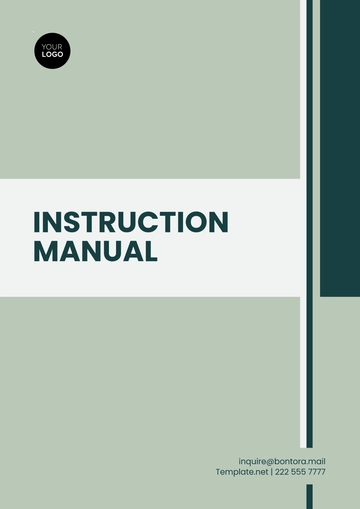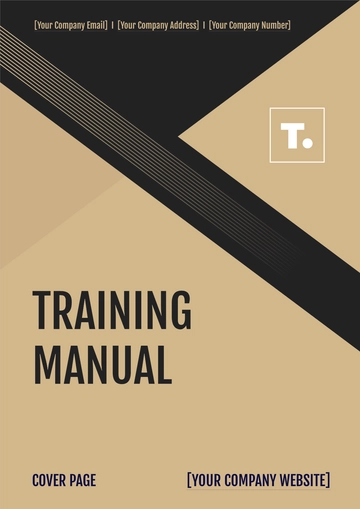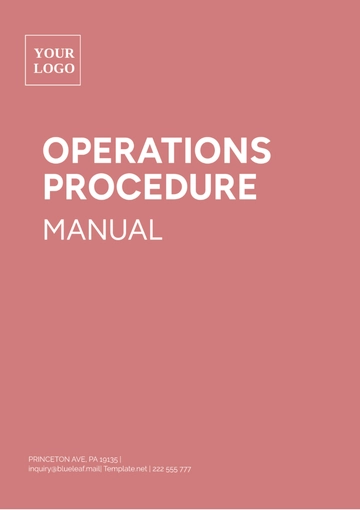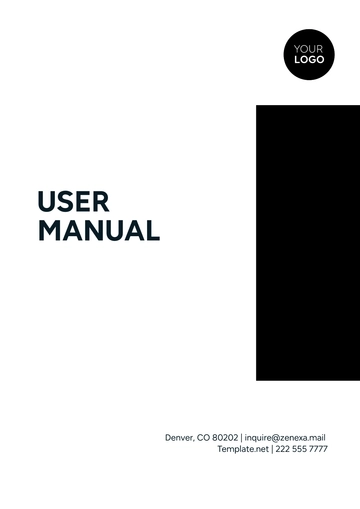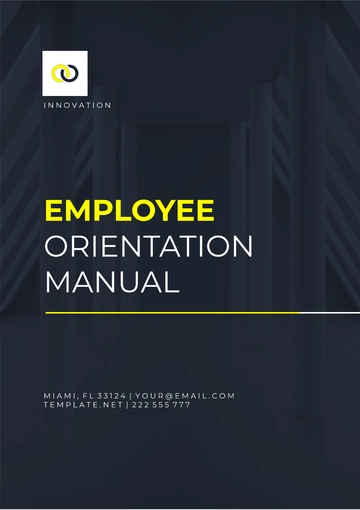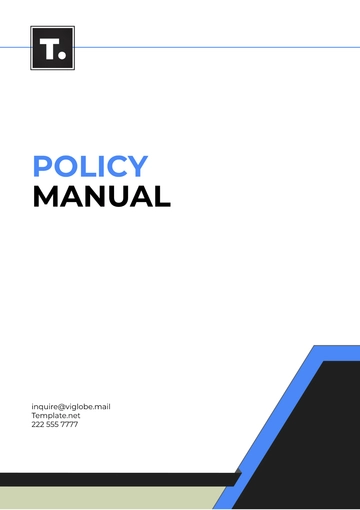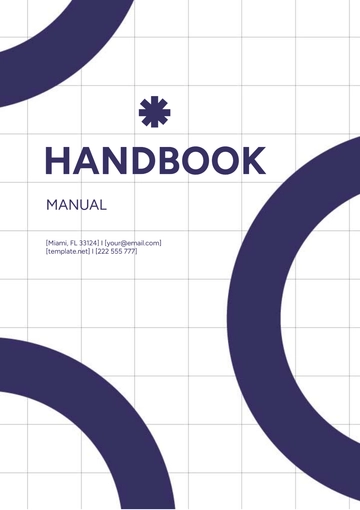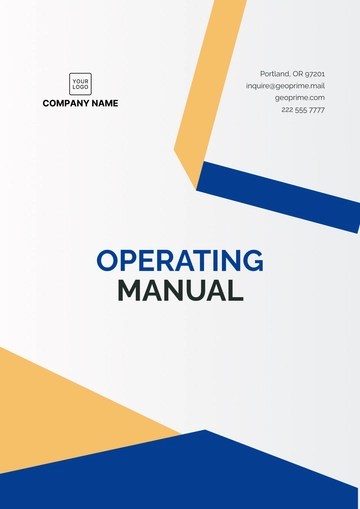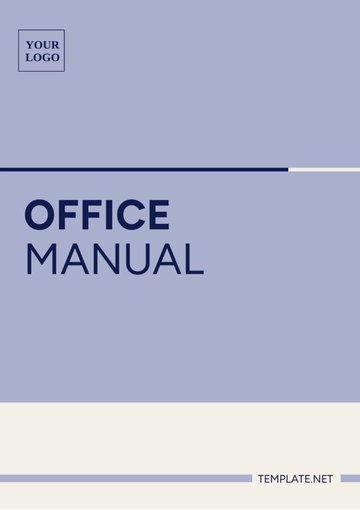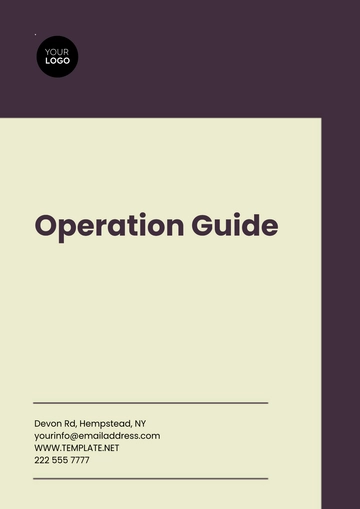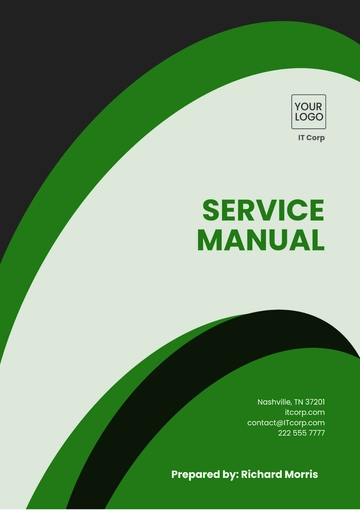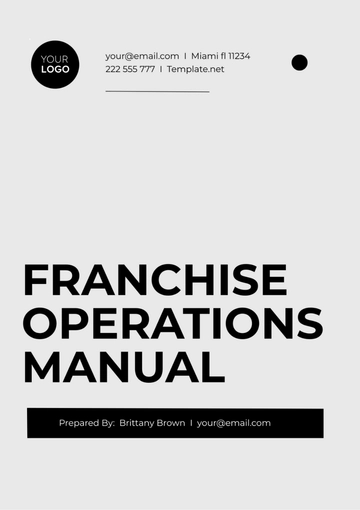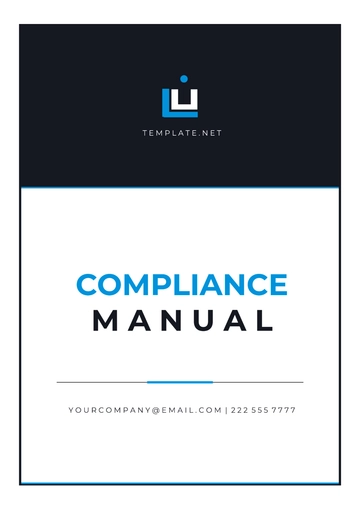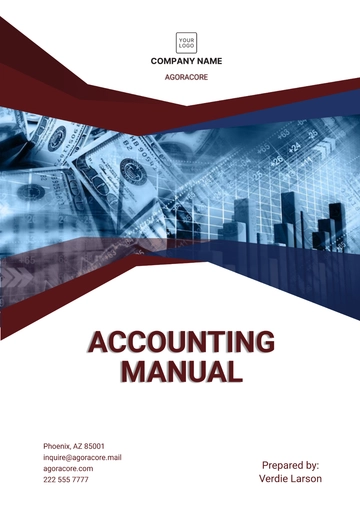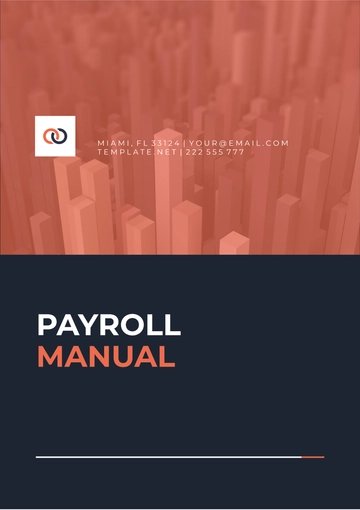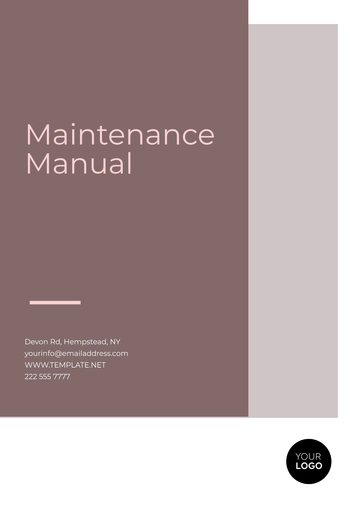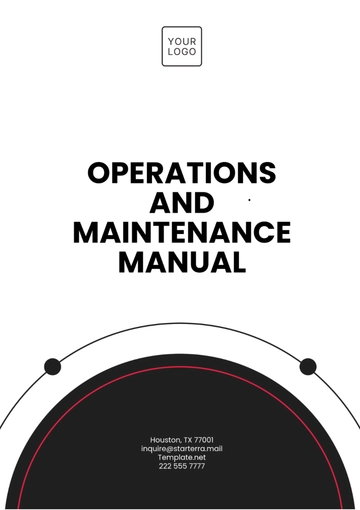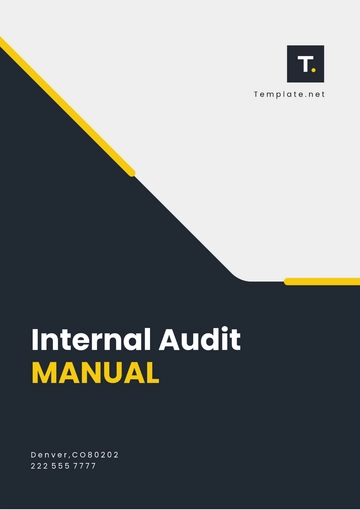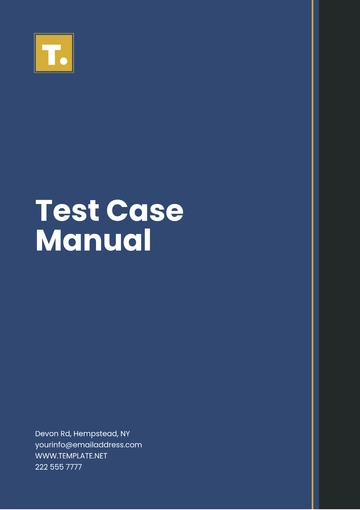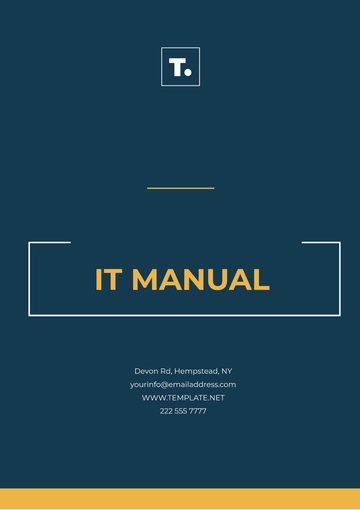Free Finance Internal Control Training Manual
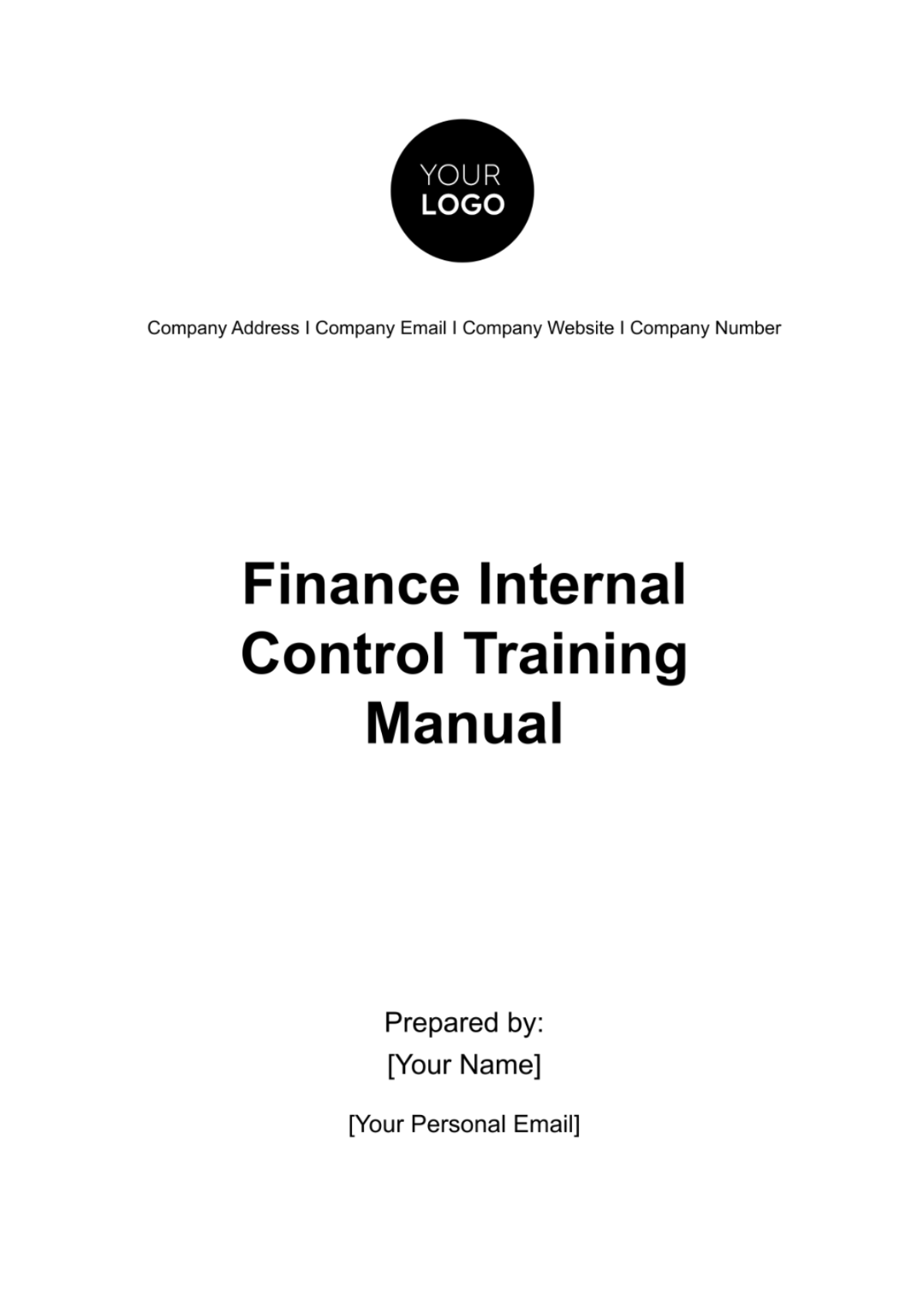
Introduction
Overview of Internal Controls
Definition and Objectives
Internal controls are the processes, policies, and procedures designed to safeguard an organization's assets, ensure the accuracy and reliability of financial information, and promote operational efficiency. The primary objectives of internal controls within the finance domain are to:
Prevent errors and inaccuracies in financial reporting.
Safeguard assets from misappropriation or theft.
Ensure compliance with laws, regulations, and organizational policies.
Enhance the efficiency and effectiveness of financial operations.
Importance in Financial Management
Effective internal controls are the cornerstone of sound financial management. By establishing robust control measures, organizations can reduce the risk of financial irregularities, enhance accountability, and build confidence among stakeholders. Finance professionals play a pivotal role in implementing and adhering to these controls to maintain the integrity of financial processes.
Purpose and Importance of Finance Internal Control Training
The Finance Internal Control Training Manual is designed to equip employees with the knowledge and skills necessary to understand, implement, and maintain effective internal controls within the finance function. The training serves the following purposes:
Knowledge Transfer: Provide employees with a comprehensive understanding of internal controls, their significance, and the role each individual plays in maintaining them.
Risk Mitigation: Educate participants on identifying and mitigating financial risks through the implementation of control activities.
Compliance: Ensure that all financial processes align with legal and regulatory requirements, as well as internal organizational policies.
Cultural Embrace: Foster a culture of accountability, transparency, and ethical behavior within the finance department and the organization as a whole.
Target Audience
This training manual is intended for employees across various roles within the finance department, including but not limited to:
Finance Managers
Accountants
Financial Analysts
Procurement Specialists
Budget Managers
Accounts Payable and Receivable Staff
Key Concepts and Definitions
Internal Controls
Definition and Objectives
Internal controls encompass a wide range of activities that collectively contribute to the achievement of organizational goals. They are not static but evolve in response to changes in the business environment. It is crucial to understand that internal controls are everyone's responsibility, and each team member plays a vital role in their implementation and effectiveness.
Importance in Financial Management
In financial management, the importance of internal controls cannot be overstated. They provide a structured framework that ensures the accuracy of financial records, aids in the prevention and detection of fraud, and facilitates the achievement of financial objectives. By adhering to internal controls, we not only protect the organization's assets but also enhance the reliability of financial information, which is essential for decision-making at all levels.
Segregation of Duties
Definition and Purpose
Segregation of duties involves dividing tasks and responsibilities among different individuals or departments to reduce the risk of errors, fraud, or the concealment of irregularities. The fundamental principle is to ensure that no single person has control over all aspects of a financial transaction, from initiation to authorization to recording.
Examples in Finance
Initiator vs. Approver: The person who initiates a financial transaction should be distinct from the individual who approves it. For example, the employee requesting a purchase should not be the same person approving the payment.
Cash Handling vs. Recordkeeping: Individuals responsible for handling cash should not be involved in recording financial transactions. This segregation minimizes the risk of misappropriation and ensures the accuracy of financial records.
Organizational Policies and Procedures
Code of Conduct
Ethical Standards
Our organization places a strong emphasis on ethical behavior in all aspects of our operations. Finance professionals are expected to uphold the highest standards of integrity, honesty, and transparency in their dealings. Adhering to ethical principles is not only a legal requirement but also contributes to the organization's reputation and long-term success.
Compliance with Laws and Regulations
Finance professionals must be aware of and comply with relevant laws and regulations governing financial transactions. This includes tax regulations, financial reporting requirements, and industry-specific regulations. Failure to comply can result in legal consequences and reputational damage.
Financial Policies
Expense Reimbursement
Our organization has established clear policies regarding expense reimbursement to ensure that employees are reimbursed for legitimate and authorized expenses. These policies cover submission deadlines, required documentation, and approval processes.
Purchasing and Procurement
Procurement processes are designed to be transparent, competitive, and aligned with the organization's strategic objectives. This section will provide detailed information on procurement policies, including vendor selection, bidding processes, and contract management.
Revenue Recognition
Accurate revenue recognition is essential for financial reporting integrity. This section will outline our organization's policies and procedures for recognizing revenue, including criteria for revenue recognition and documentation requirements.
Control Activities
Documentation and Recordkeeping
Importance of Accurate and Complete Records
Accurate and complete financial records are the foundation of effective internal controls. This section emphasizes the significance of maintaining detailed documentation for all financial transactions. Proper documentation not only supports transparency but also aids in audits, reviews, and decision-making processes.
Record Retention Policies
Our organization follows established record retention policies to ensure that financial records are retained for the appropriate duration. This includes guidelines on the retention of invoices, receipts, contracts, and other supporting documentation. Adherence to these policies is crucial for compliance and legal purposes.
Physical and Logical Access Controls
Access Authorization
Controlling access to physical and electronic financial systems is critical for preventing unauthorized activities. This section outlines the process of granting and revoking access rights, emphasizing the principle of least privilege. Employees will learn about the importance of safeguarding access credentials and reporting any suspicious activities promptly.
Security Measures for Financial Systems
To protect against data breaches and unauthorized access, our financial systems are equipped with robust security measures. This includes encryption, multi-factor authentication, and regular security updates. Employees will be guided on how to navigate these security features and contribute to maintaining a secure financial environment.
Monitoring and Review
Ongoing Monitoring
Continuous Evaluation of Controls
Internal controls are not a one-time implementation; they require continuous monitoring to ensure their effectiveness. This section explores the concept of ongoing monitoring, encouraging employees to actively assess the performance of controls in their day-to-day activities. Regular self-assessments and team evaluations are key components of this continuous improvement process.
Exception Reporting
Employees will be trained to recognize and report exceptions or deviations from established controls. Whether it's a discrepancy in financial records or a potential security breach, timely reporting is crucial for addressing issues before they escalate.
Periodic Reviews
Internal Audits
Internal audits play a pivotal role in assessing the overall effectiveness of internal controls. This section provides an overview of the internal audit process, including planning, fieldwork, and reporting. Employees will understand their role in supporting internal auditors and implementing corrective actions based on audit findings.
Management Reviews
Regular reviews conducted by management are essential for reinforcing a culture of accountability. This section explores the responsibilities of management in reviewing financial reports, assessing control effectiveness, and making informed decisions based on the information presented.
Risk Assessment
Identifying Financial Risks:
Financial risks can significantly impact organizational stability. Market risks, such as fluctuations in interest rates and currency values, must be carefully identified and assessed. Operational risks, encompassing disruptions in day-to-day activities, demand a thorough understanding to implement effective mitigation strategies.
Mitigation Strategies
Our organization employs a robust risk management framework. This involves a systematic approach to identifying, evaluating, and mitigating risks. Control implementation is emphasized, ensuring that employees are equipped with practical strategies to reduce the impact of potential risks on financial processes.
Reporting and Communication
Internal Reporting
Clear and transparent internal reporting is essential for informed decision-making. This section covers the preparation and understanding of financial statements and management reports. Participants will gain insights into how accurate and timely reporting contributes to organizational success.
External Reporting
External reporting involves compliance with regulatory requirements and transparent communication with external stakeholders. Participants will learn the intricacies of regulatory compliance, transparency, and disclosure, ensuring the organization maintains a positive reputation in the external financial landscape.
Compliance
Legal and Regulatory Requirements
This section outlines the legal landscape governing financial transactions. Participants will gain an understanding of applicable laws and regulations, including tax codes and financial reporting standards. Compliance with these requirements is crucial to avoid legal repercussions and maintain ethical financial practices.
Internal Compliance Policies
Organizational policies are integral to maintaining internal order. Participants will delve into internal compliance policies, emphasizing adherence to established standards. Clear consequences for non-compliance will be communicated to instill a sense of responsibility and accountability among finance professionals.
Case Studies and Examples
Real-life Examples of Internal Control Failures
Learning from real-world scenarios enhances practical understanding. This section explores case studies of internal control failures, allowing participants to analyze the root causes and consequences. Lessons learned from these examples will be applied to reinforce the importance of stringent internal controls.
Lessons Learned and Best Practices
Building on case studies, this section distills key lessons and introduces best practices. Participants will understand how organizations have successfully navigated challenges, identifying actionable insights to improve internal control mechanisms within their own roles and responsibilities.
Training and Awareness Programs
Training Initiatives
Continuous learning is integral to staying abreast of evolving financial landscapes. This section outlines the various training initiatives, including initial onboarding training and ongoing refresher courses. Employees are encouraged to actively participate in these programs to enhance their skills and knowledge.
Communication Strategies
Effectively communicating internal control policies is essential for their success. This section emphasizes the role of internal communication channels and strategies for promoting a culture of compliance. Encouraging open dialogue ensures that employees feel confident in reporting issues and seeking clarification on internal controls.
Resources and References
Additional Reading Materials
Supplemental reading materials provide depth to participants seeking further insights. This section includes recommended articles, books, and research papers, allowing employees to expand their understanding of finance internal controls.
Useful Websites and Tools
Providing practical resources is crucial for ongoing reference. Participants will be introduced to websites and tools that offer up-to-date information on finance internal controls. Access to these resources empowers employees to stay informed and continuously improve their internal control practices.
Contact Information for Support
Open communication channels for support are vital. This section provides contact information for individuals or departments responsible for addressing queries and concerns related to internal controls. Employees are encouraged to seek assistance when needed, fostering a collaborative approach to maintaining effective controls.
Conclusion
Recap of Key Takeaways:
As we conclude this Finance Internal Control Training Manual, let's revisit the key takeaways that form the foundation of effective financial management. We've explored the critical role of internal controls in safeguarding assets, ensuring accurate financial reporting, and promoting operational efficiency. Remember, internal controls are not just a set of rules; they are a collective responsibility that each of us shares in upholding the financial integrity of our organization.
Commitment to Continuous Improvement:
Our commitment to continuous improvement is paramount. The financial landscape evolves, presenting new challenges and opportunities. As finance professionals, our dedication to staying informed, adapting to changes, and proactively enhancing our internal control practices is crucial. Let's embrace a culture of perpetual learning and improvement, where each day presents an opportunity to refine our skills and contribute to the organization's long-term success.
- 100% Customizable, free editor
- Access 1 Million+ Templates, photo’s & graphics
- Download or share as a template
- Click and replace photos, graphics, text, backgrounds
- Resize, crop, AI write & more
- Access advanced editor
Explore the Finance Internal Control Training Manual Template on Template.net – your key to streamlined financial processes. This editable and customizable template, powered by an intuitive AI Editor Tool, ensures precision in compliance, risk management, and fraud prevention. Elevate your team's financial acumen effortlessly, adapting controls with ease. Unleash the potential of effective internal controls today!
